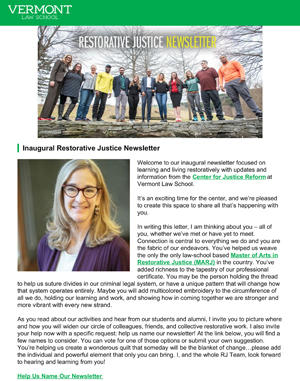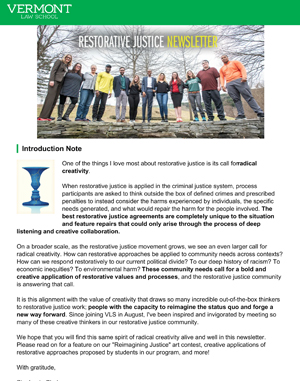Award-winning author David R. Dow, death penalty lawyer and University of Houston Law Center professor, joins critics and legal scholars in giving high praise for "Storytelling for Lawyers," a new book about the central role of narrative in litigation by Vermont Law School Professor Philip N. Meyer.
"Every lawyer now knows that winning depends on more than having the tightest syllogism," writes Dow in his review, published by Vermont Law Review (Volume 39 Book 1). "It depends on moving the audience, or the decision-maker; and accomplishing that movement is only partly a function of logic. It also includes what can be thought of as an appeal to a pre-rational instinct or emotion. We have certain beliefs just because we have them, and successful lawyers know that legal victories come from appealing to those very beliefs."
"So how do lawyers do that? They tell stories, of course. Philip N. Meyer's splendid book, 'Storytelling for Lawyers,' is both an explanation of this phenomenon and a master class on what makes an effective story and how to construct one."
Dow is founder of the Texas Innocence Network and has represented more than 100 death row inmates in state and federal appeals.
"Vermont Law Review was extremely pleased to publish Professor David Dow's glowing review of Professor Meyer's book, 'Storytelling for Lawyers,'" said Marie Horbar, editor-in-chief of Vermont Law Review. "I want to extend my congratulations to Professor Meyer on his achievement and thank the Vermont Law Review staff for their hard work on this article."
A PDF of Dow's full review of "Storytelling for Lawyers" can be downloaded from the VLS website.
In "Storytelling for Lawyers" (Oxford University Press, March 2014), Meyer begins with a pragmatic theory of the narrative foundations of litigation practice and then applies it to a range of practical illustrative examples: briefs, judicial opinions and oral arguments. Intended for legal practitioners, teachers, law students, and even interdisciplinary academics, the book offers a basic yet comprehensive explanation of the central role of narrative in litigation. The book also offers a narrative toolkit that supplements the analytical skills traditionally emphasized in law school as well as practical tips for practicing attorneys that will help them craft their own legal stories. For more information about "Storytelling for Lawyers," visit www.storytellingforlawyers.com.
Vermont Law Review is a journal of legal scholarship published by Vermont Law School students in consultation with VLS faculty and administration. Vermont Law Review's main objectives are to present readers with timely, topical information concerning the legal profession and legal scholarship, and to afford Vermont Law Review members an educational experience which shall hone their skills in research, writing, legal analysis, and leadership. For more information about Vermont Law Review, visit lawreview.vermontlaw.edu or email Marie Horbar at mariehorbar@vermontlaw.edu.


















